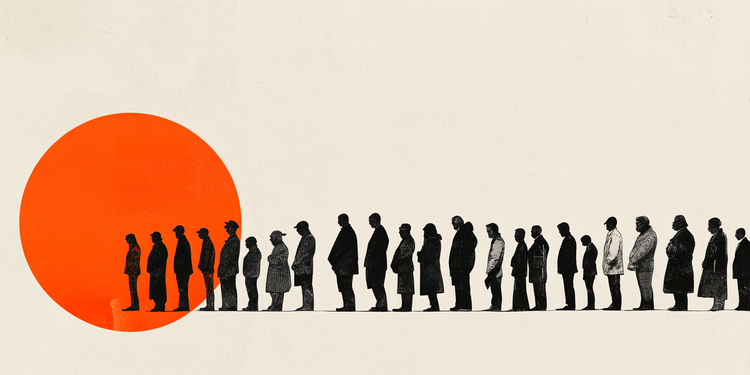People who were exposed to famine while still in their mothers’ wombs are more than twice as likely to develop diabetes in adulthood, compared to those who did not experience food shortages during pregnancy, according to a new study published last Thursday (8) in the scientific journal Science.
To the discoveries show how hunger during pregnancy can have long-term health impacts. Previous studies have shown that hunger during pregnancy can increase a child’s risk of developing diabetes later in life.
But those studies were relatively small, according to Peter Klimek, a data scientist specializing in epidemiology at the Supply Chain Intelligence Institute Austria and co-author of a perspective article published with the study.
To fill this gap, researchers in the current study decided to analyze birth data from more than 10 million Ukrainians born between 1930 and 1938. Between those years, there was a major period of food shortages known as the Holodomor (also known as the “Famine-Terror” or “Great Famine”), which resulted in approximately four million deaths in the short term.
According to Klimek, this historical event provided an opportunity to examine the relationship between food scarcity during pregnancy and the risk of diabetes.
Risk more than doubles
Of the total number of Ukrainians analyzed by the study, more than 128,000 people were diagnosed with type 2 diabetes during the first years of the 20th century.
To estimate the severity of famine each person faced, the team analyzed the number of excess deaths that occurred in 23 Ukrainian regions, including 16 that were affected by food shortages. From this, the researchers classified the severity of famine as extreme, very severe, severe or no famine.
The team found that people born in early 1934, who would have been conceived during the famine, had a higher overall risk of developing type 2 diabetes as adults, compared to those who were not exposed to the famine during the early stages of their development.
Furthermore, the study showed that people conceived in regions that experienced extreme famine more than doubled their risk of developing the disease. Those exposed to severe famine while still in the womb were about 1.5 times more likely to develop type 2 diabetes decades after birth than those in regions without famine.
The researchers also found that there was no increased risk of diabetes among those exposed to famine in the later stages of pregnancy. According to the authors, this suggests that early pregnancy is the most vulnerable time for the baby to be exposed to malnutrition.
For scientists, the findings could lay the foundation for future studies in animals that help unravel the mechanisms behind the increased risk of diabetes.
Diabetes medication during pregnancy poses no risk, study says
Source: CNN Brasil
I am an experienced journalist and writer with a career in the news industry. My focus is on covering Top News stories for World Stock Market, where I provide comprehensive analysis and commentary on markets around the world. I have expertise in writing both long-form articles and shorter pieces that deliver timely, relevant updates to readers.







